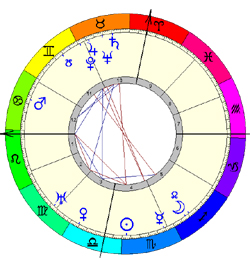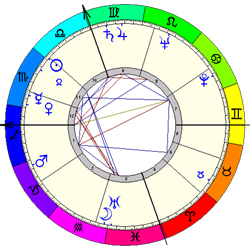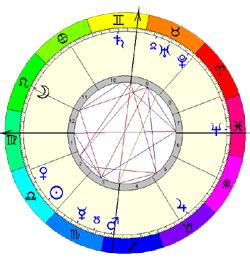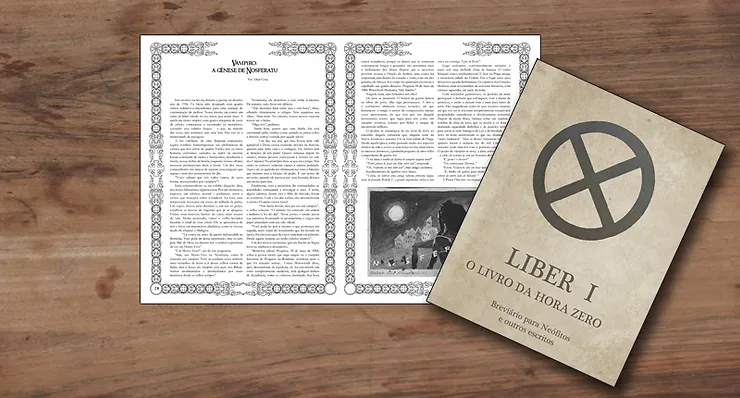
Peço desculpas aos que não são familiarizados com a língua inglesa, mas não dá pra deixar passar uma entrevista com o Mestre.
Alan Moore – anarchist, occultist, “mumbling reclusive”, practising magician and the most important comic book writer of the last three decades – is explaining how he found himself in the peculiar position of guest directing last week’s Cheltenham Science Festival. With matching greying flowing hair and beard, fingers generally crowded with scorpion rings and ideas every bit as wild as his appearance, he cuts a surprising figure among the rationalist likes of Prof Robert Winston, Prof Brian Cox and Roger Highfield, the editor of New Scientist.
“It certainly seems a little incongruous to me,” he allows, speaking from between the stacks of rare books that crowd his terrace house in Northampton and make it “almost unliveable”. The writer behind Watchmen, V for Vendetta and From Hell fell in with the science crowd as a result of his appearances at Robin Ince’s ‘School for Gifted Children’ shows in London. Self-depreciatingly, he describes the events as “a bunch of really talented comedians, and scientists and musicians… and then me” but he is delighted to have been accepted by the rigorously rationalist audience. Especially given his decision on his 40th birthday to become an Aleister Crowley-style practising magician and simultaneously start worshipping the second century snake god Glycon.
“I find myself in the possibly unique position of being a kind of snake-worshipping occultist that rationalists for some obscure reason feel comfortable about,” chuckles the 57-year-old serial nonconformist.
Moore’s take on the sort of hardline Christians who deny evolution would certainly ingratiate him with the Dawkins set. They’d approve of his intervention at his local museum, which had covered over the letters that revealed Charles Darwin’s link to Northampton after creationist protests. The museum changed their mind once Moore brought the weight of his publicity against the decision.
“The world of material things that science is so perfect at describing should not be intruded upon by religious fanatics who simply are upset because what science has discovered doesn’t happen to agree with their creation myths,” he argues, before meandering into his take on Genesis, which has Adam and Eve as amoebas living in the “puddle of Eden” before the “snake” of DNA brought them sex and death and ruined their state of grace.
That said, Moore’s intense distrust of religion extends beyond Christianity, Islam and the rest of the usual suspects. Since the word religion really means “bound together in one belief”, he says that some of the extreme rationalists are as guilty. “I find the idea of being bound together in one belief as an article of faith kind of disturbing wherever that occurs, whether that’s in fundamentalist Christianity or it’s in some of the extremes of current rationalist science. It’s unnatural.”
Singling out ring leader of the ‘new atheism’ Richard Dawkins, Moore says he can be more religious than scientific in his dedication to his own theory of evolution. “There are lots of alternatives to, say, the selfish gene theory of Darwinism,” he says. “I’ve got a great deal of admiration for Richard Dawkins’ thinking, but there are other biologists who are putting forward different ideas. If you are proposing an idea because it’s your idea, you’re proud of it, you want to see it succeed, if you’re doing that to the exclusion of other ideas, that’s not strictly speaking scientific. It is religious. That is the kind of thinking that I am opposed to wherever it occurs.”
Refusing to root for one side or another in the great stand-off between science and spirituality, Moore has suggested a kind of “two-state solution” where each worldview stays out of the other’s business. “They are not necessarily naturally in opposition to each other because science actually grew out of magic, as did religion,” he explains. “Science and religion are like magic’s squabbling, unruly children who have both decided that their parent should be nutted off to a secure facility somewhere because it’s an embarrassment to both of them. Whereas I think that a magical worldview can do an awful lot to resolve those two contradictory things.”
Moore’s support for magic is a logical extension of his job as a writer of fiction, he believes. Science is fine for everything in the outside world but it just doesn’t do a good enough job on his inner life for him to accept it as a universal theory. “Science can not tell me that some symbol or some entity or story that I chose to give significance to is not significant.”
Following British writer Iain Sinclair’s idea of ‘psychogeography’, Moore has recently been writing significance and meaning onto his East Midlands hometown. The discipline studies how people’s environments affect their emotions and behaviour and has been key to all of Moore’s work since he discovered the theory whilst writing From Hell. The story of Jack the Ripper, he realised at that point, was inextricably linked to Victorian London. “The Ripper murders – happening when they did and where they did – were almost like an apocalyptic summary of… that entire Victorian age,” he has explained before.
If the theory can give context to horrific murders, Moore also thinks it can be used actively, to retrofit our dingy urban environments with grand stories.
“I can choose to walk down a street in Northampton that is drab and run down, like everywhere else in the country, with plasterboard in the windows and tumbleweed bowling down the shopping precinct and have a fairly miserable experience,” he says. “Or I can choose to consider the landscape around me not in terms of its bricks and its litter and its concrete, but in terms of what that landscape means.
“I can think, yeah, this is a grubby pedestrianised area, but that’s where Oliver Cromwell slept the night before the Battle of Naseby. That miserable-looking station just down the road? That was formerly that castle where Thomas à Becket was brought to trial and where at least two of the Crusades started out.
“That was King John’s castle, where he lost all of the crown jewels in the River Nene and he said, ‘Don’t worry, they’ll come out in the Wash’. But they never did. There is this wonderful rich landscape.”
We can all change our everyday environment this way, with just a bit of effort, he says. And the benefits could be huge, “All psychogeography is, is a kind of application of poetry to the urban landscape that can potentially make that landscape enriched and meaningful. If you’re walking through a meaningful landscape, you might eventually feel that you are meaningful.”
Moore’s appreciation of Northampton’s storied history goes some way to explain why he’s stayed there, rather than upped sticks to the States, where the comics industry is primarily based and where his second wife Melinda Gebbie hails from. Staying in the town he was born in has also sheltered him from the unwelcome side effects of fame. It’s also been easier to ignore the film adaptations of his writing, which he noisily hates, even as they bolster his fame and attract more people to the revolutionarily complex world of his comics.
“Most of the people here are so used to me that they don’t take any notice of me,” he says. “That means that I can have ordinary relationships with ordinary people and I don’t feel that I am excluded or exotic or that people are talking up to me. I still feel like part of a community. That’s probably why I hang out in Northampton rather than losing myself by the poolside in LA for a couple of decades.”
Ironically, it was Moore’s early social rejection in his hometown that shaped his maverick personality. A working class boy from the Burroughs – the oldest and most deprived end of town – he had boundless faith in his own intelligence until he went to grammar school and found himself up against prep school kids who already had a smattering of Latin. “I suddenly realised that, no, I wasn’t the smartest boy in the world after all. It was just that I came from quite a dim neighbourhood, “ he recalls. “That blow to my ego probably precipitated my rejection of normal societal values and everything that followed.”
Later finding himself expelled from the same grammar school for selling LSD, Moore found himself unable to get any work at all, aside from at the local tannery – where light relief came in the form of throwing hacked off sheep’s testicles at each other. “That did make me realise that actually, I was kind of fucked. And if I was ever going to have any other life outside of the tanning yards down Bedford Road then I was going to have to do it all myself,” he says. “It forced me to consider my own resources and that is what pushed me into the life that I now enjoy.”
Moore’s hatred for both the comics establishment and Hollywood make sense through this anti-establishment prism, but he has long since come to see Northampton as a sanctuary rather than the enemy. And for their part, his neighbours have come to welcome the occultist, anarchist, hairy genius in their midst too. “Taking responsibility for myself has allowed me to come to a point where I am very well accepted in Northampton,” he says. “The people who do know who I am, they recognise what it means that I’ve chosen to stay here. It’s a gesture of confidence in the town where they live.”
http://www.bigissuescotland.com/features/view/548





Respostas de 20
Muito interessante, outro dia estavam falando sobre significancia dos lugares da cidade e comunicação com a mesma num post do Mayhem, era sobre Barbelith se não me engano…
Deve ser incrível, por falta de palavra melhor, ver esse “ser humano” ao vivo. Receber um autógrafo, então, pura raridade, e também um total privilégio por ter estado em contato com alguém tão único. Uma honra, de fato 🙂
É interessante como sua cidade natal faz parte do seu imaginário criativo e social. Está mais explícito no ótimo “A voz do fogo”. Quem leu sabe! ^^
Heh da vontade de ir até a cidadezinha dele só para conversar com ele enquanto ele passa na livraria :p
Ele é gênio, mais uma vez nos trouxe um resumo perfeito de um conceito importantíssimo:
“If you are proposing an idea because it’s your idea, you’re proud of it, you want to see it succeed, if you’re doing that to the exclusion of other ideas, that’s not strictly speaking scientific. It is religious. That is the kind of thinking that I am opposed to wherever it occurs.”
Resolvi traduzir (do meu último comentário):
“”Se você está propondo uma ideia porque ela é sua, então você estará orgulhoso dela, e desejará que ela seja bem sucedida. Mas se está fazendo isso procurando excluir ideias contrárias, isso não é exatamente científico. Isso é religioso (dogmático). Esse é o tipo de pensamento ao qual me oponho onde quer que apareça.” (Alan Moore)
tive um deja vu lendo esse texto…
senhor del debbio,o que o senhor recomeda os livros de Logsamp Rampa?
@MDD – Nunca li nenhum livro dele, mas estava olhando a biografia na wikipedia e ele parece ser um autor divertido de se ler.
Eu já li todas as obras do T. Lobsang Rampa. Ocultismo oriental muito bem descrito. Há pessoas que dizem ele ser uma fraude, sem terem lido os livros dele. Meu conselho é: leia primeiro, julgue depois.
Também já li todos os livros do Lobsang Rampa, que foi um dos meus primeiros contatos com o ocultismo, e faço a mesma recomendação do Mazzon. 😉
Excelente entrevista!
Acho muito bacana como ele usa o próprio ponto de vista para criar, fugindo muito do padrão de criação baseado no comercial-vendável que é tão comum no mainstream.
A relação dele com Northampton e sua historia também é muito interessante…. O trabalho que ele vem escrevendo “Jerusalem” , vai abordar bastante (ou somente) isso.
Alguma alma caridosa se habilita a traduzir a entrevista?
podia ser o raph, que ja começou hehe
Later finding himself expelled from the same grammar school for selling LSD, Moore found himself unable to get any work at all, aside from at the local tannery – where light relief came in the form of throwing hacked off sheep’s testicles at each other. “That did make me realise that actually, I was kind of fucked. And if I was ever going to have any other life outside of the tanning yards down Bedford Road then I was going to have to do it all myself,” he says. “It forced me to consider my own resources and that is what pushed me into the life that I now enjoy.”
@MDD – Alan Moore é o maior exemplo para qualquer pessoa que pense que não tem condições de chegar à Iluminação através da Alquimia, não importa onde comece a jornada.
Ah se todo roteirista de quadrinhos fosse como o Alan Moore ou Grant Morrison…
E essa história dele com Glycon, o Deus cobra cultuado no século II? será algum tipo de barganha ou puro capricho?
Ola amigo, nesse link: http://vimeo.com/9229678
Consta uma entrevista dele cara, mandei a parte 4 pq consta mais o que li acima com meu péssimo inglês, mas vale a pena ve-la toda, o cara é simplesmente genial.
Abraços
O universo que ele criou na America Best Comics é sensacional. Apesar de não ter nada ‘novo’, ele ‘remasteriza’ todos os conceitos e clichés dos quadrinhos clássicos mas de forma inteligente e realista. E como é bem jeito dele, quando teve o Apocalipse em Promethea foi o Apocalipse pra todos os personagens do universo dele tbm o.o achei isso sensacional.
Definitivamente uma figura … legal o texto, e a relação que ele narra ter com a população natal de sua cidade!
“That means that I can have ordinary relationships with ordinary people and I don’t feel that I am excluded or exotic or that people are talking up to me.”
uma coisa que sempre me deu duvida, o alan moore diz que a magia acontece somente no subconsciente das pessoas, entao quando por exemplo eu trago para dentro de mim uma determinada energia (um exemplo o elemento fogo) eu estou apenas acessando uma energia infinita já existente na minha mente?
E se todo o trabalho magistico acontece dentro da minha mente como é possivel a mudança no mundo exterior?
MDD se possivel me explica isso ai, ou me da algo pra eu procurar e tirar as minhas duvidas, vlw!
Eu sempre tive uma duvida quanto as ideias do Moore. Se a magia age no meu inconsciente, como é possível haver alterações no plano físico? E uma segunda pergunta, por que é tão difícil ocorrer mudanças no plano físico?
Vlw pela atenção MDD!
@MDD – 1) Porque se fosse fácil as pessoas estariam matando umas às outras… 2) As alterações no Plano Físico acontecem sempre através de sincronicidades, ou coincidências. as energias astrais buscarão o caminho mais fácil até se manifestarem, mas só podem agir através de ações físicas, ou “coincidências”
Olha eu de novo enchendo teu saco xD
Eu não consigo ver onde esta a sincronicidade quando uma pessoa trabalha com energia interna e entorta uma barra de ferro na garganta, ou, quando um monge seca uma toalha molhada no inverno com a concentração no elemento fogo…
No caso você não estaria empreendendo uma ação que teria um fim desejado? Como o universo pode encontrar outro caminho para essa realização? Se ocorre outro resultado a operação não teria dado errado?
Agradeço a atenção e desculpe o tanto de perguntas!
o melhor pra você MDD!
e aquela historia de que o Alan Moore uma vez encontrou o John Constantine, ja ouviu falar? Seria isso verdade ou possivel?
obrigado MDD!